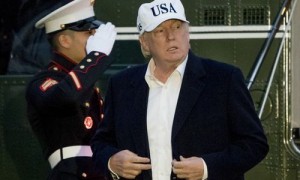The US Justice Department has blasted tech-giant Apple, for attempting to resist an order to unlock the iPhone belonging to one of the San Bernardino County shooters. It has urged a federal judge to force the Silicon Valley company to comply, accusing it of interfering with a crucial terrorism probe.
Last December, 14 people were killed in the San Bernardino, California terrorist attack, another 22 wounded. The two suspects were killed by police. One of the terrorists had in his possession an iPhone 5.
Investigators want to know what's on that phone but, like most iPhones, the information is encrypted. Enter the wrong password 10 times and all the information on the device is erased. Even Apple can't access the data. So the FBI wants Apple to build a so-called "Back Door" by creating a new operating system to install on the phone.
"They are not asking Apple to redesign its product or to create a new backdoor to one of their products. They're simply asking for something that would have an impact on this one device," said Josh Earnest, White House spokesman.
But Apple says building a backdoor into the San Bernardino phone would give the FBI access to all iPhones. A court has ordered Apple to comply, but the tech giant says to do so would jeopardize the security their customers expect.
In a statement to Apple customers, CEO Tim Cook writes: "We have used encryption to protect our customers' personal data because we believe it's the only way to keep their information safe. We have even put that data out of our own reach, because we believe the contents of your iPhone are none of our business."
Encryption has become a controversial issue, especially since former NSA contractor Edward Snowden revealed broad electronic data collection by the U.S. National Security Agency.
The intelligence community says it needs access to smart phone data to fight terrorism, but privacy advocates say a backdoor into smart phones goes too far.
"I think it's a real risk to privacy and security when you make the phones more vulnerable. It's not just the FBI that gets access. It could be criminal hackers, it could be foreign spies, it could be industrial competitors. It's a real danger I think to American consumers and American business," said Marc Rotenberg, Electronic Privacy Information Center.
Apple will fight the FBI in court but ultimately the U.S. Congress may need to write new laws to strike a better balance between privacy and security.
"We've got to re-find that balance because today the situation is unsustainable. And eventually, unfortunately, in this country we'll probably have another terrorist attack. When that happens, had there been encrypted data on that phone that could have stopped that attack, the American people are going to say 'what happened," said Jamil Jaffer, former assistant US attnorney.







